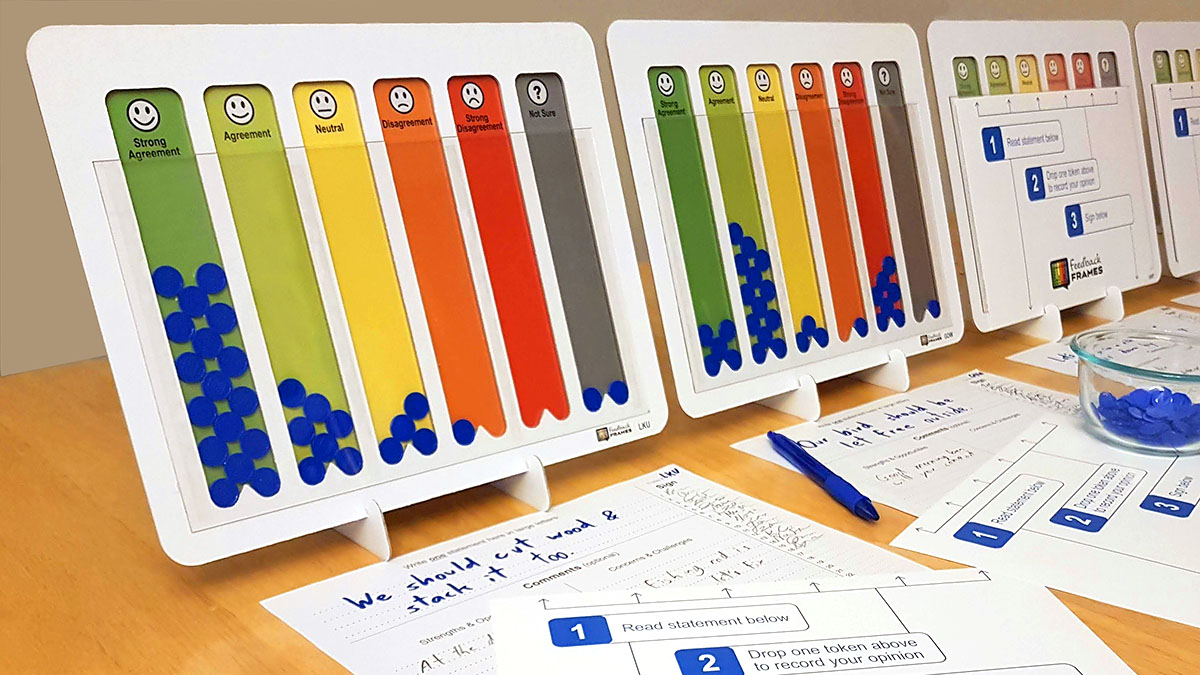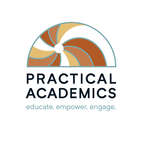 iCivics offers media-rich, collaborative experiences that immerse students in learning about landmark Supreme Court cases through role-playing simulations. Students act as Petitioners, Respondents, or Supreme Court Justices, applying Constitutional principles and precedents to fictional cases related to student rights. Modules like "Student Free Speech" and "Student Due Process" engage students in examining the First and Fourteenth Amendments, respectively, through interactive scenarios. Teachers are supported with facilitation guides and step-by-step instructions to effectively incorporate these simulations into their curriculum. Read more in the blog post below and learn more about the simulations here.
0 Comments
SHARE YOUR INPUT! The National Issues Forums Institute, a NCDD member organization, is seeking feedback on their issues guide materials. NIFI has a wide range of issue guides and these materials have been important tools in the dialogue and deliberation field for over two decades. Learn more in the post below, including the link to the survey.
NCDD friends, the Bridge Alliance and Citizen Connect, recently shared an opportunity from Forum for Democracy USA to access a free civics education pilot program. This three-month-long pilot begins this month, and will include lesson plans and grading rubrics to support discussion and debate related to civics, public policy, journalism, and more. If you sign up by February 15th, educators licenses for the program are available for free until April. Learn more about the opportunity in the post below and on FFD's site here.
Happy Facilitation Week! In honor of this week recognizing the importance of facilitation practice (read more about it a facilitationweek.org), our friend Jason Diceman at Feedback Frames is offering our network an amazing deal on this tool for in person meetings! Learn more below.  To help support the important facilitation work of NCDD members, Feedback Frames is offering a 40% discount this week only. NCDD Member Michael Freedman of Practical Academics shared the following blog post with us. In the post, Michael shares best practices for your online meetings – a timely topic for this moment! We encourage you to check out the article below, or over at the Practical Academics site here.  Online Meeting Best Practices The advantages of online meetings are to save travel time, convenience, and flexibility while retaining or augmenting the benefits of group interactivity. For interactivity, we need engagement; for engagement, we need encouragement and trust. A one-way webinar is not a lot better than a video or a one-to-many lecture. Here are some points to consider in developing and running an interactive online meeting. Please use the comment field to add your thoughts on civic entrepreneur John Spady's Idea Incubator post! NCDD has been talking to John about this idea, and we're excited to engage NCDDers in these questions leading up to (and at) NCDD Seattle this fall.
Occasionally I'll hear or read about someone, somewhere, who says, "We need a national dialogue about X..." -- where X might be "race relations" or "immigration reform" or "the national debt" or (insert your own issue here) -- a list of issues that is indeed long and important. While the issues are important, what I personally think about is how can we even do it? How might we design an organizational infrastructure for a coordinated and practical national dialogue? This is a topic I want to cover during our NCDD conference in Seattle this October. But first, I'd like to invite my fellow NCDDers to help me think about this concept further. Let me start with what I think our goal should be: To create an adaptive and collaborative infrastructure that enables any participant to learn about, and respond to, selected national issues; and to form a confederation in support of a National Dialogue Network Infrastructure. And the general values that I think such an infrastructure should possess, are:
I think it should have oversight and accountability from a trusted national scope nonprofit organization (so it can receive tax deductible donations) but that operational and day to day management would be a coalition or confederation of collaborating individuals from national scope organizations (a planning board) who understand the value of working together to achieve what is harder for any one of them to accomplish alone. I am also thinking that while issues are determined and advanced by the planning board that it would also be critical to have a pathway for issues from outside the planning board to be received from the general public. If public and published criteria are met then it should be incumbent on the planning board to formally respond to an issue request and make a decision to adopt the issue or not. And I want to talk about funding ideas… should funds come from only a single source (for example, one helpful foundation), from multiple donations contributed by the organizations making up the planning board, or from strictly public contributions (individuals and/or multiple foundations)? The simplest mental image I can think of to describe all of this is that of a tree with twinkling lights. Each light represents a community scale organization talking about its own issues and so each light is different. But each light decorates the national tree, and occasionally (when the need calls for it), all the lights glow with the same color because all the organizations are asking their members to talk about the same important issue. Supporting community scale efforts creates an infrastructure for national scale issues. And I think it will require more cooperation and less competition. I hope this is enough for now to give people an idea of what I'm trying to propose. I welcome any and all thoughts and comments. Are we ready (and willing) to collaborate? John can be reached on these social networks:
|
Categories
All
|
Follow Us
ABOUT NCDD
NCDD is a community and coalition of individuals and organizations who bring people together to discuss, decide and collaborate on today's toughest issues.
© The National Coalition For Dialogue And Deliberation, Inc. All rights reserved.
© The National Coalition For Dialogue And Deliberation, Inc. All rights reserved.

 RSS Feed
RSS Feed